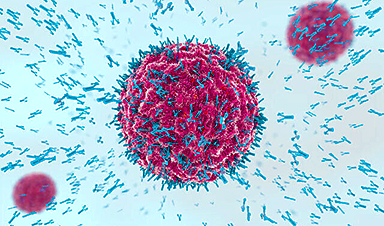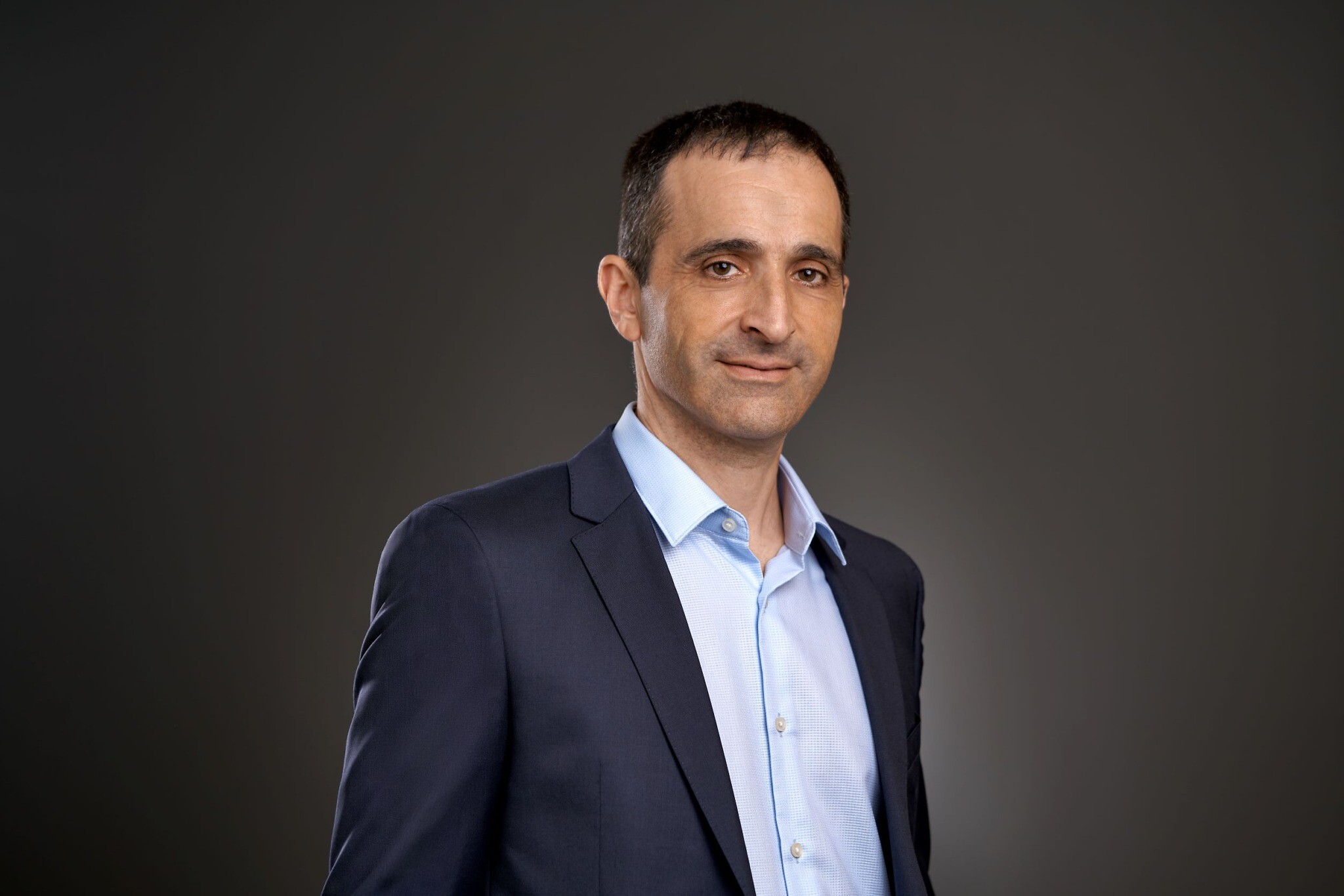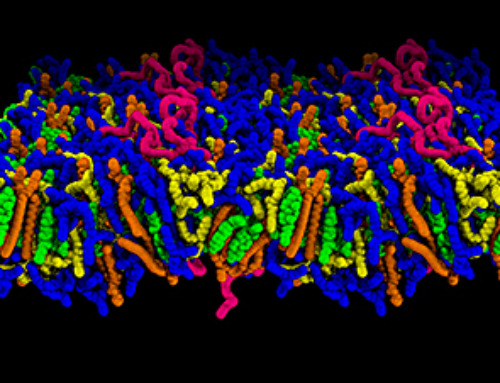Cancer patients are testing a medicine made of antibodies that were designed from scratch on a computer in Israel and whose inventor has “programmed” them to “decide” whether cells surrounding tumors are bad or good.
If the trial, which is underway in Australia, goes according to plan, these antibodies will fight cells that help the tumor while boosting the abilities of cells that inhibit cancer growth.
Their inventor, Prof. Yanay Ofran, said that until now, antibody treatments have been based on human or animal antibodies. They are then developed in labs and mass produced, but the final product retains limitations from the original antibodies.
“Antibodies are very successful, but the way they are used in medicine today utilizes only a fraction of their capability,” he told The Times of Israel. “Our mission is to take antibodies and seize on the fact they are safe, stable, easy to use and can stay on the shelf for years, to unlock their full ability.”
Ofran, a Bar Ilan University professor, has published numerous peer-reviewed studies on his method of designing antibodies on a computer. They emphasize the “smart” quality of the new antibodies.
This means that instead of carrying out a single function, like fighting a single virus, they can survey their surroundings and act in different ways when faced with different types of cells. Ofran refers to them as “nano-robots.”
The new AU-007 antibody treatment is the first computer-designed antibody to enter a human trial, he said. It was designed by artificial intelligence software at the Rehovot offices of his startup Biolojic Design, and is being trialed by its spin-out company Aulos Bioscience. Biolojic is now working on several other treatments.
Ofran’s breakthrough results from a laborious research process, which involves creating many millions of antibodies and monitoring their behavior in the lab.
His team’s artificial intelligence software analyzes the data on how the antibodies behave. “We learn from the observations we collect how to create a new antibody that will do exactly what we want it to do,” said Ofran.
AU-007 uses antibodies that can “feel” or “sense“ their surroundings and differentiate between cells that are likely to help or hinder a tumor based on features on the cell’s exterior such as cilia, which are protruding antenna-like structures.
“What we’re doing is to use the antibody to identify the cells they meet, and activate cells that can attack the tumor while stopping cells that help the tumor,” Ofran explained.
Ofran is a descendent of one of Israel’s best-known scientists. His grandfather Prof. Yeshayahu Leibowitz, while most remembered for his religious and political writing, was a professor of organic chemistry and neurology, and a leader in those fields during Israel’s early decades.
Ofran hopes that his work will change scientists’ understanding of the potential of antibodies. Today they are generally deployed to perform a single task — for example, to neutralize coronavirus. As he puts it, they are “one-trick ponies.”
Designing antibodies by computer opens up the possibility of making them multi-function, as illustrated by AU-007’s ability to boost cancer-fighting cells but do the opposite with cells that help cancer.
“Instead of just seeking out one environment and reacting always with the same response, we’re producing antibodies that can act conditionally, meaning if the cells appear one way they do ‘x,’ and if they look another way they do ‘y,’” Ofran said.
“This opens up the door to smarter therapeutics that can execute sophisticated plans to cure disease.”
News
How lipid nanoparticles carrying vaccines release their cargo
A study from FAU has shown that lipid nanoparticles restructure their membrane significantly after being absorbed into a cell and ending up in an acidic environment. Vaccines and other medicines are often packed in [...]
New book from NanoappsMedical Inc – Molecular Manufacturing: The Future of Nanomedicine
This book explores the revolutionary potential of atomically precise manufacturing technologies to transform global healthcare, as well as practically every other sector across society. This forward-thinking volume examines how envisaged Factory@Home systems might enable the cost-effective [...]
A Virus Designed in the Lab Could Help Defeat Antibiotic Resistance
Scientists can now design bacteria-killing viruses from DNA, opening a faster path to fighting superbugs. Bacteriophages have been used as treatments for bacterial infections for more than a century. Interest in these viruses is rising [...]
Sleep Deprivation Triggers a Strange Brain Cleanup
When you don’t sleep enough, your brain may clean itself at the exact moment you need it to think. Most people recognize the sensation. After a night of inadequate sleep, staying focused becomes harder [...]
Lab-grown corticospinal neurons offer new models for ALS and spinal injuries
Researchers have developed a way to grow a highly specialized subset of brain nerve cells that are involved in motor neuron disease and damaged in spinal injuries. Their study, published today in eLife as the final [...]
Urgent warning over deadly ‘brain swelling’ virus amid fears it could spread globally
Airports across Asia have been put on high alert after India confirmed two cases of the deadly Nipah virus in the state of West Bengal over the past month. Thailand, Nepal and Vietnam are among the [...]
This Vaccine Stops Bird Flu Before It Reaches the Lungs
A new nasal spray vaccine could stop bird flu at the door — blocking infection, reducing spread, and helping head off the next pandemic. Since first appearing in the United States in 2014, H5N1 [...]
These two viruses may become the next public health threats, scientists say
Two emerging pathogens with animal origins—influenza D virus and canine coronavirus—have so far been quietly flying under the radar, but researchers warn conditions are ripe for the viruses to spread more widely among humans. [...]
COVID-19 viral fragments shown to target and kill specific immune cells
COVID-19 viral fragments shown to target and kill specific immune cells in UCLA-led study Clues about extreme cases and omicron’s effects come from a cross-disciplinary international research team New research shows that after the [...]
Smaller Than a Grain of Salt: Engineers Create the World’s Tiniest Wireless Brain Implant
A salt-grain-sized neural implant can record and transmit brain activity wirelessly for extended periods. Researchers at Cornell University, working with collaborators, have created an extremely small neural implant that can sit on a grain of [...]
Scientists Develop a New Way To See Inside the Human Body Using 3D Color Imaging
A newly developed imaging method blends ultrasound and photoacoustics to capture both tissue structure and blood-vessel function in 3D. By blending two powerful imaging methods, researchers from Caltech and USC have developed a new way to [...]
Brain waves could help paralyzed patients move again
People with spinal cord injuries often lose the ability to move their arms or legs. In many cases, the nerves in the limbs remain healthy, and the brain continues to function normally. The loss of [...]
Scientists Discover a New “Cleanup Hub” Inside the Human Brain
A newly identified lymphatic drainage pathway along the middle meningeal artery reveals how the human brain clears waste. How does the brain clear away waste? This task is handled by the brain’s lymphatic drainage [...]
New Drug Slashes Dangerous Blood Fats by Nearly 40% in First Human Trial
Scientists have found a way to fine-tune a central fat-control pathway in the liver, reducing harmful blood triglycerides while preserving beneficial cholesterol functions. When we eat, the body turns surplus calories into molecules called [...]
A Simple Brain Scan May Help Restore Movement After Paralysis
A brain cap and smart algorithms may one day help paralyzed patients turn thought into movement—no surgery required. People with spinal cord injuries often experience partial or complete loss of movement in their arms [...]
Plant Discovery Could Transform How Medicines Are Made
Scientists have uncovered an unexpected way plants make powerful chemicals, revealing hidden biological connections that could transform how medicines are discovered and produced. Plants produce protective chemicals called alkaloids as part of their natural [...]






















